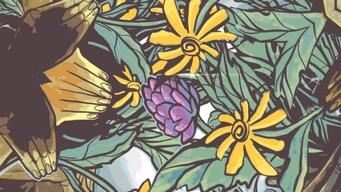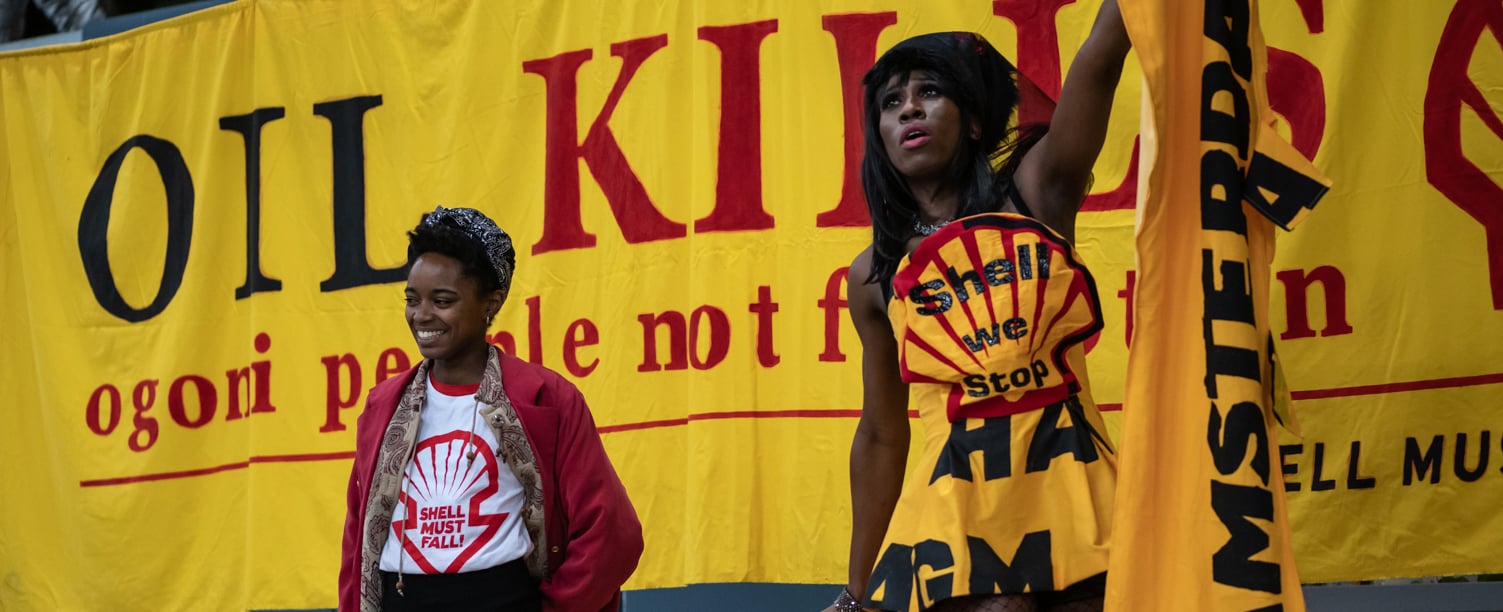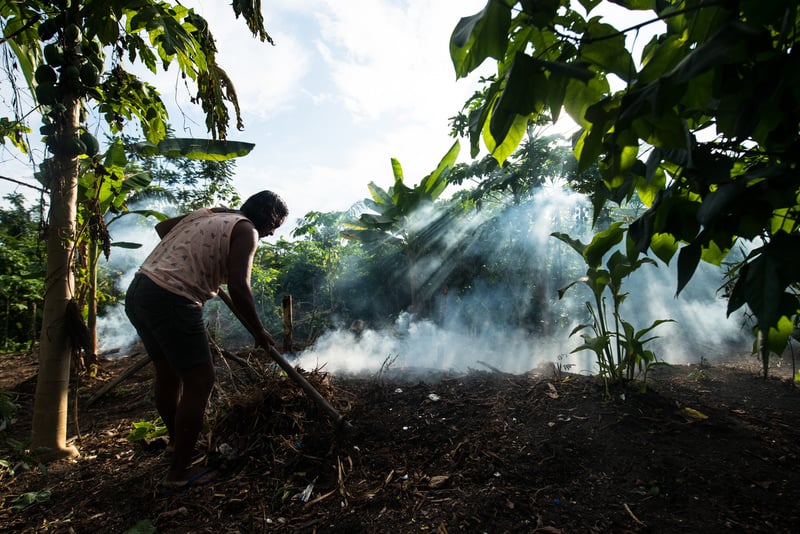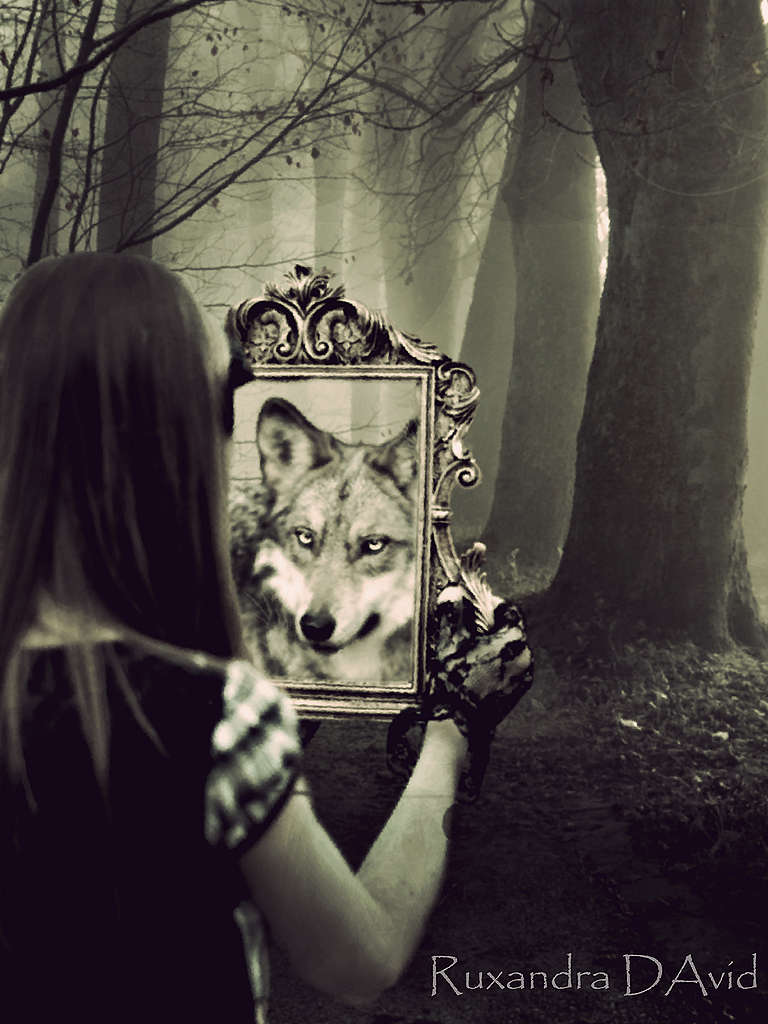
She Wolf by Ruxandra DAvid
There is an old story, one that many cultures have told (although not all) and which, arguably, the West has adopted as central. The story of a human protagonist, ultimately good, who has to conquer an evil character, purely bad. These two characters are opposites and have nothing in common.
From the experiences I have had with Deep Democracy, Process Work, and other psychological based embodiment methodologies, I firmly believe that this story is not one that is true and does not serve humanity and the planet any longer. I enjoy stories which challenge this duality, by uncovering the back stories of the “evil characters,” so they might be re-humanised in our minds.
Deep democracy recognises that the outer world is a reflection of our inner world and that we all have within us the potential for all behaviours/ actions/ thoughts which exist in any single human. I believe this is some of the important work of our time – to find how we are like each other, to re-humanise the “big bad wolves” we see in our worlds, in order to have conversations which might truly lead to understanding and change.
I often become very worried about the present and future of our world. I believe it can be better, and I want to change it. This activates my inner hero. I become determined to conquer the evils of climate change or racism. But, as many have pointed out – including Bayo Akomolafe in his exceptional talk about slowing down in urgent times – trying to force change is often part of the problem, because that kind of thinking is caught up in the same game. By fighting, we leave the other side no option but to defend their position more vehemently. This reinforces binary roles and worsens the antagonism. The good guy creates the villain and vice versa. They’re entangled, two branches of the same tree. Max Schupbach, cofounder of the Deep Democracy Institute, once said, “If you win a fight, you’re finished.”
I am by no means suggesting that fighting and defending is not necessary. There is certainly an urgent need to defend land, forests and rivers, and to take on big corporations endlessly extracting fossil fuels. Indigenous communities and frontline activists do this, often putting their bodies on the line. To everyone in these positions, I offer a deep bow. Joanna Macy, in her book Coming Back to Life, calls this “holding actions in defence of life”.
Taking part in group processes with the Deep Democracy Institute, deepened my understanding of a sense I have always had, that if we hear anyone’s story, we will both come to understand them and find them living in ourselves. The wisdom, articulated through Deep Democracy is by no means new; many indigenous cultures recognise these principles as fundamental truths.
The principle of Deep Democracy as is defined by The Process Work Institute, from which the Deep Democracy Institute was born, is unlike conventional democracy in which a majority wins and the least supported voices are marginalised. It recognises that in a conversation, all perspectives are essential. The practice of deep democracy creates a space for all voices of the system to emerge and be heard, including different parts of ourselves -relationship, deep feelings and dreams. The understanding is that only then can a society or a system find productive ways forward, or at least inclusive ways.
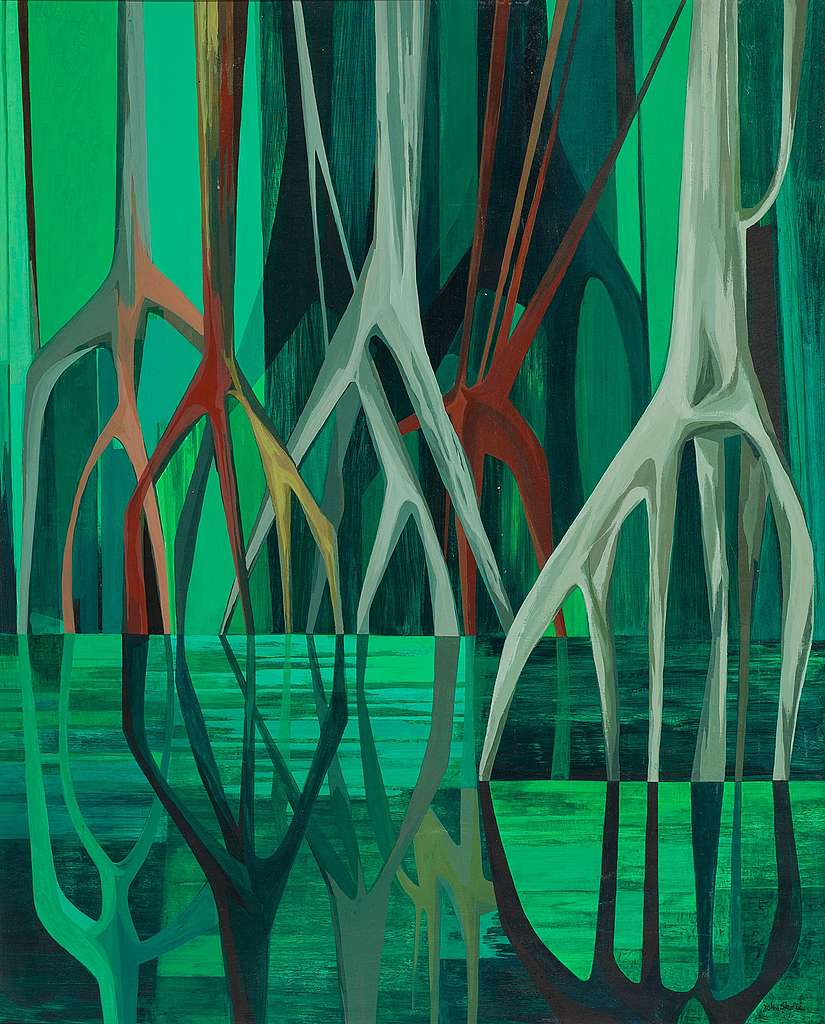
Credits: Mangroves, 1969. John (Hanns) Skolle (1903-1988)
The Deep Democracy group process that shifted my perspective on activism took place in Barcelona on the 10th floor of a building with windows open to the sky. It was the morning of the seventh day, of a 10-day workshop. About 70 of us had been learning together, some of us living together, many of us eating together -it was a total immersion in the Deep Democracy principles, and in the community of practitioners and students.
The morning sessions included facilitated group conversations on conflict. As in other sessions, we and the facilitators sat in concentric circles with some of us standing around the edges. The space in the middle, where the process would take place, was like a waiting dojo. We were invited to suggest a topic of conflict. Through a process called sorting, we reached consensus. Our topic: “Lying and telling the truth – when is it okay to lie?”
The facilitators invited anyone who felt strongly to come forward and take up a position or a role and be that voice in the conversation. By “roles”, I don’t mean acting. Rather, we gave voice to what we felt strongly at that moment, knowing we might deeply identify with that aspect (or role), or perhaps our association to that role was more momentary. It was a full-body, immersive experience, rather than a heady conversation.
Enthusiastic participants quickly defined the roles, standing in different spots in the open space in the centre, so that it’s clear where each role is located in the space. Those closest to the windows felt hurt by people lying, and those closest to the door felt justified in lying for one reason or another. Every participant was free to join the conversation, add to any of the roles, stand next to someone speaking for a role or bring in a new role. Anyone could choose to switch roles by moving across the room if they felt more aligned with another perspective. I joined the witnesses, standing around the action, engaged but not active in the conversation.
Midway through the dialogue, both sides had deepened their understanding of their positions, as well as the other’s. Those who felt hurt by those lying realised that in some ways they couldn’t handle the truth, whilst those representing the ones lying, became aware that they lied to not have to deal with the consequences of the truth. Then a man stood near the door and said he was speaking on behalf of a company that lies. A company that sold products which they knew to be harmful. “I am the CEO of a car company that has suppressed the fact that diesel exhausts cause people to die of cancer,” he said. “I don’t do anything about it because I thought the effect was negligible.”
Suddenly it was as if the CEO of one of these corporations, who, in my mind, sits in an ivory tower somewhere, was in the room. This struck a nerve with me. I dislike big businesses, especially ones that disregard lives to make more money. I see the people involved in these companies as modern-day villains.
A woman, who identified with the pain of being lied to, responded, “I can’t believe that. It makes me feel the deep hopelessness of the world. I would prefer that you lie to me. I don’t want to know that these kinds of attitudes are in the world.”
As the conversation continued, the woman realised she didn’t want to recognise the part of herself that could lie and hurt people. “I’m so afraid to look at these parts in myself,” she said. “I prefer to lie to myself and believe it has nothing to do with me.”
Someone else said, “Nobody believes they are a villain, even the people who work for these companies and who have seen the research that shows that their products are toxic and don’t do anything about it. Even they still believe they are doing something good for their company.”
“If I have to choose between 5 million people and my job, I choose my job,” said the CEO.
The turning point came when a new participant joined the side of those lied to and addressed the CEO: “I am like you. I choose to buy a car, knowing exactly that it will pollute our Earth and affect others. I am the same. I am you, too.”
This recognition shifted the conversation. The CEO responded, “The moment you say that, I want to switch roles. That’s the first time that I actually don’t feel alone in this. I don’t have to hide it any more. Because maybe I am not actually that conformable about this and maybe there are new solutions.”
I suddenly saw how, in small ways, I was also the CEO. Sometimes I’m selfish and do things that work for me but that harm the planet or other people. I might buy takeout in nonrecyclable packaging when I’m working on a deadline, or drive my car when I could cycle. I focus more on my job than on the broader context. I know that some of my actions have harmful effects, but that doesn’t stop me. Like the executive, I am also trying to survive in a destructive system. Seeing this tendency in myself, I can meet CEOs with more empathy. They have been somewhat rehumanised for me.
Of course my actions are minor compared to those of a director of a fossil fuels company who chooses to ignore the science and to continue to extract oil without an effective enough plan to transition to sustainable energy. And yet, even that human has a backstory and is held in place not only by themselves, but also by the system in which they operate.
Let me tell another quick story which I heard in an episode of the On Being podcast. The story is about Derek Black, maybe you’ve heard it. Derek was a student of a college in the U.S. and came from a white supremacist family. He was organising white supremacist rallies and conferences. Once his political identity was revealed at the college, he was ostracised by the student community. Matthew Stevenson, also a student at the time and one of a few Orthodox Jews on campus, invited Derek to the weekly Shabbat dinners he held for a group of friends. They became friends and for a long time didn’t talk directly about their political differences. After about a year of being friends, conversations about their political views started to take place among the friends who regularly attended the Shabbat dinners. Through these conversations, Derek began to reassess his views and then began to actively work to counter white supremacy.
What if we held the notion that there aren’t any big bad wolves? What if we met all humans as potential friends, with intricate, personal and familial stories which have led them to become who they are? Might we then be able to stand next to the players in the very companies we are challenging, and look together with them at the whole array of the situation, their, and our inner worlds and identities, climate change, the system that perpetuates itself, the complexity of changing large organisations? What might that shift in approach open up? If we imagined that we were on the same team, what could we accomplish?
What would the conversation be like if we remembered that it might not be a fundamental character flaw that holds that person in that particular role; and it might not be our inherent goodness that holds us in ours? What if we imagined that we can swap roles and roles can shift and change, and saw just a little of the other in ourselves?
What if we broke the game itself that requires a good person and a bad person? If we stopped shouting and blaming, might it mean the other would not need to defend themselves as much?
What if a climate activist and a director of a fossil fuels company became friends? What would be possible then?
“If you destroy the Left you tend to become the Left; if you destroy the Right you tend to become the Right. It’s all quicksilver, a teeter-totter, and great men have been trapped and fooled by the switching of the balance.”
Charles Bukowski
“Deep democracy brings democracy to life in the moment as a living reality. In deep democracy, everyone ‘wins’ in the sense of gaining more meaningful relationships and more sustainable resolutions.”
Amy Mindell, 2008, ‘Bringing deep democracy to life’ p. 213
Louise is a facilitator, storyteller and dancer.
She has trained in Process Work, Deep Democracy, Socionomy, Expressive Movement and other modalities which offer spaces for groups to effectively engage with each other around social issues, in embodied ways.
She is a Fellow at the Complexity University and shares a deep sense of love and commitment for the More-than-Human-World. She has a passion for alternative economics and creating and collecting stories of how communities can utilise their own power to create liveable futures.

